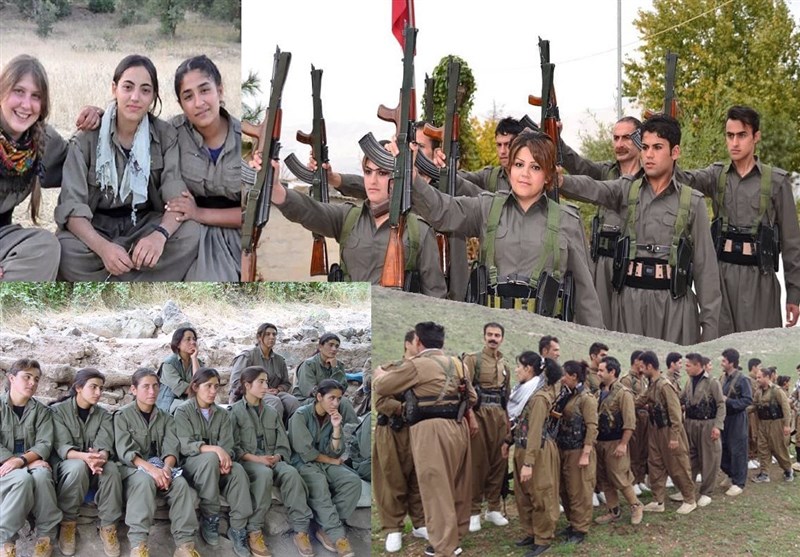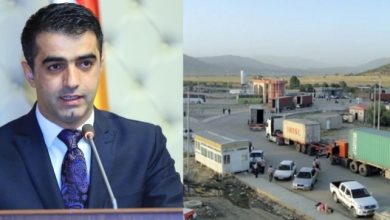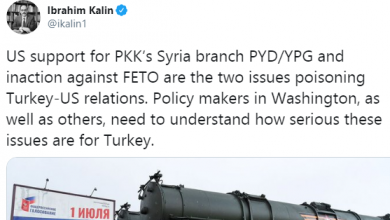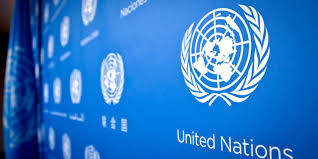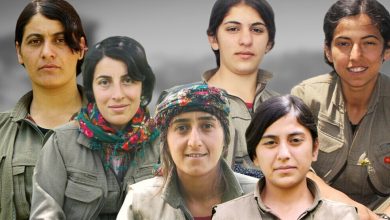Decades of armed struggle have not only failed to bring any achievements to the people but have only intensified the security environment, halted development, and created mistrust between the people and the government
A recently published report on the Iranian Diplomacy website regarding the “Democratic Party of Iranian Kurdistan’s” non-compliance with disarmament commitments has once again highlighted the necessity of examining the roots of insecurity in the western and northwestern border regions of Iran. The security agreement between Iran and Iraq for the disarmament of Iranian Kurdish armed groups, also known as the Tehran-Baghdad Security Agreement, was a security pact between Iran and Iraq signed in March 2023. According to this agreement, Iran gave Iraq until September 19, 2023, to disarm the Iranian Kurdish armed groups based in Iraqi Kurdistan and to close their military camps.
While Iran and Iraq signed this joint agreement for the disarmament of Iranian Kurdish armed groups opposing Iran in Iraqi Kurdistan, field reports and documented observations indicate that these commitments, particularly by the Democratic Party, Komala, PJAK, and PAK, have not been implemented. Instead, the recruitment and military training of teenagers, the instrumentalization of children (child soldiers), and the perpetration of violence against women in these groups’ camps continue. These groups still refuse to release and repatriate Iranian Kurdish teenagers, women, and children; they continue to prevent communication between families and their members; and they are trying in various ways to slow down or circumvent the disarmament process.
The Continued Activity of These Groups: A Threat to Iranian Kurdish Citizens
The armed behaviors of these groups have not only brought no achievements to the Kurdish community but have also led to the reproduction of a cycle of insecurity, forced migration, structural poverty, and instability in the border regions. The armed attacks and provocative actions of these groups have repeatedly created a security atmosphere in Kurdish-populated areas, ultimately victimizing defenseless Iranian Kurdish citizens and hindering the development of these regions. Groups that claim to defend the rights of the Kurdish people have themselves become serious violators of human rights by turning teenagers and women into tools of war.
The Shared Responsibility of Governments: From Baghdad to Tehran
Considering the provisions of the United Nations Charter, the principles of international humanitarian law, and human rights laws concerning the prohibition of the use of child soldiers and sexual and gender-based violence in armed conflicts, a clear legal responsibility rests with the Iraqi government, and especially the Kurdistan Regional Government (KRG). The KRG is obligated to prevent the continued activity of non-state armed groups on its soil, close their camps, and disarm their armed forces. In return, the government of the Islamic Republic of Iran also has a responsibility to protect the security of its citizens while pursuing serious legal action against the perpetrators of these insecurities through international human rights bodies and judicial institutions such as the Human Rights Council and the United Nations.
A Call for Review and an End to Violence
We urge the leaders of the Kurdish armed groups, especially the Democratic Party, Komala, PJAK, and PAK, to review their policies by considering the devastating consequences of decades of armed struggle, which have not only failed to bring any achievements to the people but have only intensified the security environment, halted development, and created mistrust between the people and the government. Abdullah Öcalan, the leader of the terrorist group PKK, also finally accepted after four decades of war, terror, and armed politics that the PKK should disarm and pursue its demands through political and civil channels. Indeed, what achievement will more than four decades of armed politicking by Iranian Kurdish armed groups bring to the Kurdish community in Iran? Continuing this path will only repeat a closed circle of violence and poverty. Iranian Kurdistan Human Rights Watch calls on all international organizations, responsible governments, civil society organizations, and independent media to take action to end the armed and anti-human rights practices of these groups and to be the voice of the victims of child soldiers, affected women, and the people who have lost their rights to life, education, work, security, and development for years under the shadow of insecurity.

